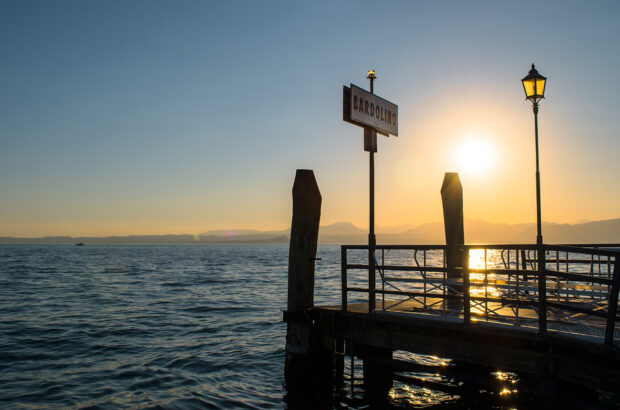On 28 August, a judge approved a winding-up petition against Wild Ferment, the parent company of former wholesaler Propeller.
The Official Receiver will now act as liquidator.
It has been a steep and rapid decline for Propeller. Founded in 2020 by Jamie Wynne-Griffiths, a longtime trade veteran, the business launched with the promise to ‘disrupt the UK wholesale model’ and offering ‘distribution as a service’.
Propeller initially received a lot of press coverage for its innovative model and quickly amassed a portfolio with some impressive names, including the Rolland Collection and Abbotts & Delaunay.
But the business has now been forced into liquidation, the extent of its debts and number of creditors currently unknown, with multiple individuals, both suppliers and employees, left professionally, personally and financially embarrassed by their association with the company.
What went so wrong at Propeller?
Launching the landing pad
Wynne-Griffiths had formerly worked for Bibendum, OW Loeb and Enotria, among others.
Initially acting as a ‘matchmaker’ with his consultancy group Wild Ferment, the Covid-19 pandemic of 2020 caused a rethink and career pivot to setting up Propeller, as he told The Buyer in a 2021 interview.
The idea was that suppliers would consign with Propeller, which would in turn take a stipend for handling the wines and payment for storage costs.
Wines would be priced with all associated costs (costs of goods sold, margin etc) baked in, with the aim being that they would be ‘cost-positive’ after six months.
Furthermore, Propeller advocated itself as a ‘landing pad’ from which suppliers might one day find an established and long-term agent after Propeller had built their brand.

Early warning signs
All appeared to start well and the company quickly grew its portfolio. But, by the end of 2023, there were outward signs that Propeller was in serious trouble, with rising debts and a growing list of unpaid creditors.
In early October of that year, a supplier got in touch voicing concerns about the company, principally that they had not been paid for several months for stock that had reportedly been sold by Propeller.
There had been ‘a lot of promises’, they added, and ‘a lot of excuses’. They said they were ‘increasingly sceptical’ of what they were being told by Wynne-Griffiths and had concerns the company was going under.
After that, events accelerated. Decanter understands the sales team began to quit, the last one doing so by the end of the year.
The company’s bonded warehousing provider, London City Bond (LCB), said it froze Propeller’s account over an unpaid duty bill in November 2023.
Decanter understands that a number of frustrated suppliers chasing unpaid invoices of their own had started refusing to pay their storage invoices in retaliation.
Several then sought out distributors ready and able to take them on, but had to pay the outstanding storage to LCB to release their stock.
The one who had initially voiced concerns had a bill of just over £4,000 to take back control of their wine.
Initial probes to find out what had gone wrong got nowhere. People didn’t want to talk. What was there to say? Sometimes, companies go bust.
A discreet auction
But Propeller hadn’t quite gone bust. It turns out that in August of 2023, Wynne-Griffiths, had opened a wine shop in the smart Dorset town of Sherborne, where he lives, called The Drinksmith (though a Facebook page hinted at plans for an opening in 2022).
In December 2023 the shop opened a bar area as well. Although by 2024 Propeller’s activities seemed minimal, its founder was still selling wines consigned to Propeller through this other venture.
Since the summer, the shop has been advertising a ‘massive warehouse clearance’ with cuts of 30-50% on all wines.

A screenshot of The Drinksmith’s website with clearance sale pop-up
Chris Archer, CEO of Joiy in New Zealand has been waiting on payments since September 2023. He said: ‘We see our stock in Jamie’s bottle shop business and our brand images used online.
‘Jamie has not paid a single cent to us [since one initial payment], and won’t, but he is happy to sell our product for his gain.’
A French producer, who likewise has not been paid since July 2023, found out that – unbeknown to them – Wynne-Griffiths had gradually withdrawn 160 bottles from LCB since the start of the year. The wines are currently being sold in The Drinksmith’s clearance sale.
Then, in July 2024, another former supplier alerted Decanter to an online wine sale being held by an auction house based in Sherborne.
The sale consisted of 398 lots, all of wines held at LCB, and all from producers who had consigned wine with Propeller.
But, few, if any, of those suppliers knew their wine was being disposed of in this way.
‘We only found out about it through another producer and certainly did not approve it,’ said Sven Bruchfield of Polkura Wines in Chile.
An enquiry to the auctioneer led to an introduction to Wynne-Griffiths himself. He said he would explain everything.
A series of unfortunate events

Jamie Wynne-Griffiths
Wynne-Griffiths acknowledged that he was ‘having to close the company’ and the auction – which ‘was a complete damp squib’ – had been a way of ‘monetising stock for creditors’.
It had all been ‘very unfortunate’, he continued. And when producers found out about the auction they were ‘rather annoyed’.
‘A lot of producers took that opportunity to get their stock out to other UK distributors,’ he said – despite the fact that this had been going on since at least the winter of 2023.
What then, in his view, had happened?
He explained that the business had struck a chord with producers and interest was immediate. Producers were only too keen to get on-board and it had become, he said, ‘like a snowball… with no time to plot where that snowball was going to go. It was another producer and another producer, [we were] not really stopping to think.’
And yet, despite Wynne-Griffiths telling Decanter that Propeller was ‘under-resourced’ from its inception, the portfolio continued to expand all the time.
More and increasingly esoteric suppliers, including boxed and canned wines, and wines from China and Ukraine, were added to the range.
When it came to taking on unproven wines, something not having a gap in the market wasn’t a problem as, ‘we were going to be the market maker,’ he explained.
‘Hindsight’s a wonderful thing,’ he continued, acknowledging that the company also suffered from cash flow issues on a recurring basis.
‘The busier it got the bigger it got, the more acute the effect the underlying lack of cash had on the business,’ said Wynne-Griffiths. ‘We were running out of cash rather than running out of good ideas or good wine.’
Cashflow issues
In response to the suggestion that on-boarding new producers was the only time the business had any operating capital, Wynne-Griffiths said that the monthly stipend per wine was ‘negligible’.
In fact, it was £500 per month per SKU, on top of storage fees. The Rolland Collection alone consigned 10 wines in June 2021, and at its peak, in late 2022/early 2023, Propeller appears to have been representing around 40 wine and spirit producers who were paying for multiple SKUs each.
Some employees recall being disquieted at the number of wines certain small producers were consigning. And yet, cashflow was a constant problem.
Former employees suggest that even by late 2022 the company was in a chaotic state, with monies owed in all directions. Pay packets were late on a couple of occasions.
It would certainly appear that the company was bringing in more wine that it could handle, had too many wines that were difficult to sell and was not turning over the levels of stock it needed to.

A tale of two investments
By 2023 the underlying weaknesses of the company began to manifest themselves.
Accounts filed at Companies House show that debts falling due each year spiralled between 2021 and 2023.
In accounts filed for the year to February of 2023, it shows that Propeller had debts falling due within one year of £266,981 and debts falling due after one year of a further £205, 461. Debts falling due in the previous accounts had been just £18,289.
A crowdfunding campaign in 2022, was below expectations, bringing in barely half of its minimum goal.
In 2023, Wynne-Griffiths continued to look for investment in order to keep going and ‘digitise the Propeller ecosystem’.
Hopes therefore rested on two big deals, both worth in the region of £750,000 he claimed, and which both fell through in late 2023 and early 2024.
The first blow was an individual who Wynne-Griffiths said strung him along to ‘sabotage’ the business and who reneged on their deal just before Christmas.
In an email to a supplier that Decanter has seen, Wynne Griffiths explained that the investor had, ‘offered to take on our duty deferment account so that stock releases from the warehouse went smoothly during December’.
As mentioned previously, Wynne-Griffiths may have been unable to pay as suppliers had started withholding storage fees. Either way, LCB froze the account when it went unpaid after the investor’s withdrawal.
This was also the point when most of Propeller’s staff were leaving or had left, and he was increasingly being pursued by unpaid creditors.
Then there was a figure who was apparently going to involve Propeller in a major own-label bulk wine deal, which Wynne-Griffiths named in the email as British Airways.
However, by January or February of 2024: ‘It slowly began to become clear that all the elements we had in place were fabricated and/or he hadn’t done anything. The whole thing was a tissue of lies born out of deceit and incompetence,’ said Wynne-Griffiths.
As a result, ‘we would be moving to close the company on a voluntary liquidation basis’, he explained.
He adds that the whole episode left him ‘floored’ and that he afterwards suffered a ‘breakdown’ during which he was ‘borderline suicidal’.
Decanter has not been able to conclusively identify either individual nor verify specifics of the deals they were involved in.
Looking back
Speaking just before the winding up order was heard, Wynne-Griffiths said: ‘What we achieved for our producers was very positive, I look around now and most have representation in the UK.
‘Bruised, but underway in the UK. Which is ultimately what we set out to do.
‘Looking back it’s very sad. There are all sorts of things it would’ve been lovely to have done differently. We worked as hard as we could in difficult circumstances.’
This is not a sentiment shared by all of Propeller’s former suppliers.
Putting off the inevitable
As referenced previously, Wynne-Griffiths said he knew he would be liquidating the company in early 2024 after two deals fell through.
He claimed that this was underway when the winding-up petition put an end to his attempts to ‘monetise the stock for creditors’.
Yet this version of events is not quite accurate.
Acting for a former supplier, Griffin Law presented the first winding up petition in mid-April 2024. Wynne-Griffiths told them that he had appointed insolvency experts Purnells to undertake a voluntary liquidation process.
After more than a month with no further news, Griffin Law contacted Purnells and discovered that its consultants had received no further instruction from Wynne-Griffiths, leading to the winding-up petition being put forward again in July.
The concluding part of this article is available here.







